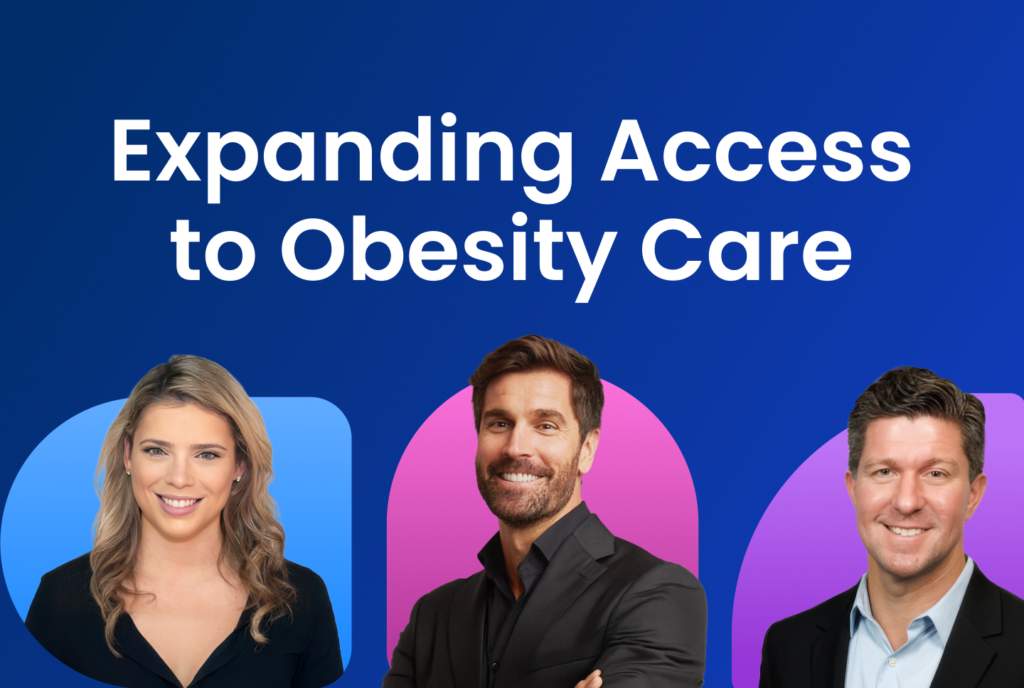Blog
Obesity is a disease, not a character flaw — it’s time to treat it that way
You’ve probably heard the whispers:
“People are just using meds like Ozempic because they’re lazy.”
“It’s a shortcut.”
“What happened to good old diet and exercise?”
Let’s stop right there.
Obesity isn’t a willpower problem, and it never was.
We need to be clear: obesity is a complex, chronic disease — not a character flaw. It’s influenced by biology, environment, behaviors, and more. That’s not just my opinion, it’s backed by decades of research, clinical experience, and most recently, a major call to action from the American Diabetes Association (ADA). Their newest guidance pushes for a systemic shift to reduce weight stigma in care. Why? Because stigma isn’t just unkind, it’s clinically harmful and can lead to missed diagnoses, poor treatment adherence, disordered eating, and avoidable complications.
Here’s our take at Vida: If we want better outcomes for individuals and for the organizations that support them, we need to treat obesity with the same clinical rigor and compassion we give to any other chronic condition, and offer wraparound care that actually works. That often includes GLP-1 medications.
GLP-1s get the spotlight, but they’re only part of the story
Yes, medications like semaglutide (Ozempic, Wegovy) and tirzepatide (Zepbound) are changing what’s possible in obesity care. And yes, the stigma around these treatments — labeling them “the easy way out” — is deeply harmful.
But here’s the truth: there’s no easy way out of a chronic disease. And no single solution, either. GLP-1s aren’t a magic bullet, they’re medicine. A legitimate FDA-approved treatment for obesity and cardiometabolic conditions offers a pathway to manage these serious health conditions. But not everyone is a candidate for GLP-1s, not every benefits plan covers them, and not every person needs or wants medication to make progress.
As a registered dietitian who’s been in the medical weight loss space for over 15 years, I’ve seen firsthand what happens when people don’t get the care they need, — and the consequences when stigma gets in the way. That’s why a flexible, multi-pathway approach is essential — one that supports every individual, regardless of where they start.
So what does real support look like?
At Vida, we start with compassion — and build from there. Our clinician-led obesity care program includes:
- Medical Nutrition Therapy with registered dietitians who personalize nutrition care plans without shame or over-restriction.
- Behavioral coaching helps members shift habits, manage stress, and build confidence.
- Integrated mental health support for emotional eating, depression, and anxiety.
- Guidance around medication for those who are prescribed GLP-1s — and ongoing support for those who aren’t.
This isn’t about “quick wins.” It’s about giving people the tools they need to manage their health long-term — without judgment, blame, or burnout.
When stigma shapes care, everyone loses.
When people feel judged, they disengage. When care is one-size-fits-all, many fall through the cracks. And when benefits leaders shy away from supporting comprehensive obesity care — whether it includes GLP-1s or not — the consequences ripple across the organization in higher rates of chronic disease, increased absenteeism, escalating claims costs, and missed opportunities for preventive care.
Avoiding the topic doesn’t avoid the cost. It just postpones progress.
Why clinician-led care makes the difference
Here’s where Vida stands apart: We’re clinician-led. Not just app-based. Not plug-and-play.
That means our members:
- Are cared for by licensed professionals who understand the full complexity of obesity.
- Get personalized treatment plans that consider medications and lifestyle interventions.
- Receive judgment-free support that helps them stay engaged long-term.
And employers get a partner who knows how to manage outcomes, not just prescriptions. We combine medical care, behavioral science, and human coaching to drive real results — sustainably, safely, and with empathy at the core. Stigma has no place in our protocols, only support.
Time to reframe the narrative
If you’re building benefits for a modern workforce, it’s time to meet members where they are — and that means treating obesity like the clinical condition it is. Not with judgment or oversimplified wellness challenges —but with real care.
Let’s stop punishing people for seeking help. Let’s stop treating medication as a failure. Let’s stop letting stigma guide our benefit decisions.
Let’s talk about the future of obesity care.
Whether you’re designing benefits for a workforce or shaping policy at scale, your population deserves care that’s informed, inclusive, and grounded in science.
At Vida, we partner with employers and health plans to make that vision a reality — delivering results that improve lives and lower costs.



